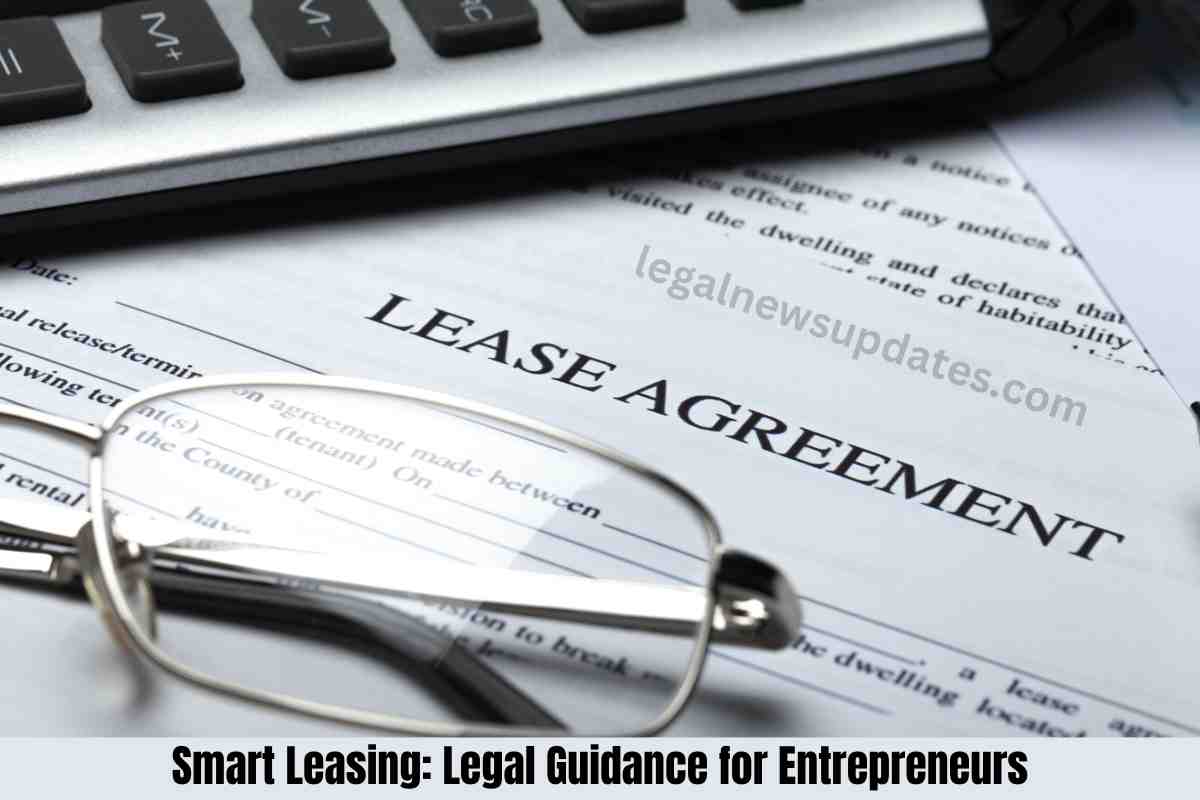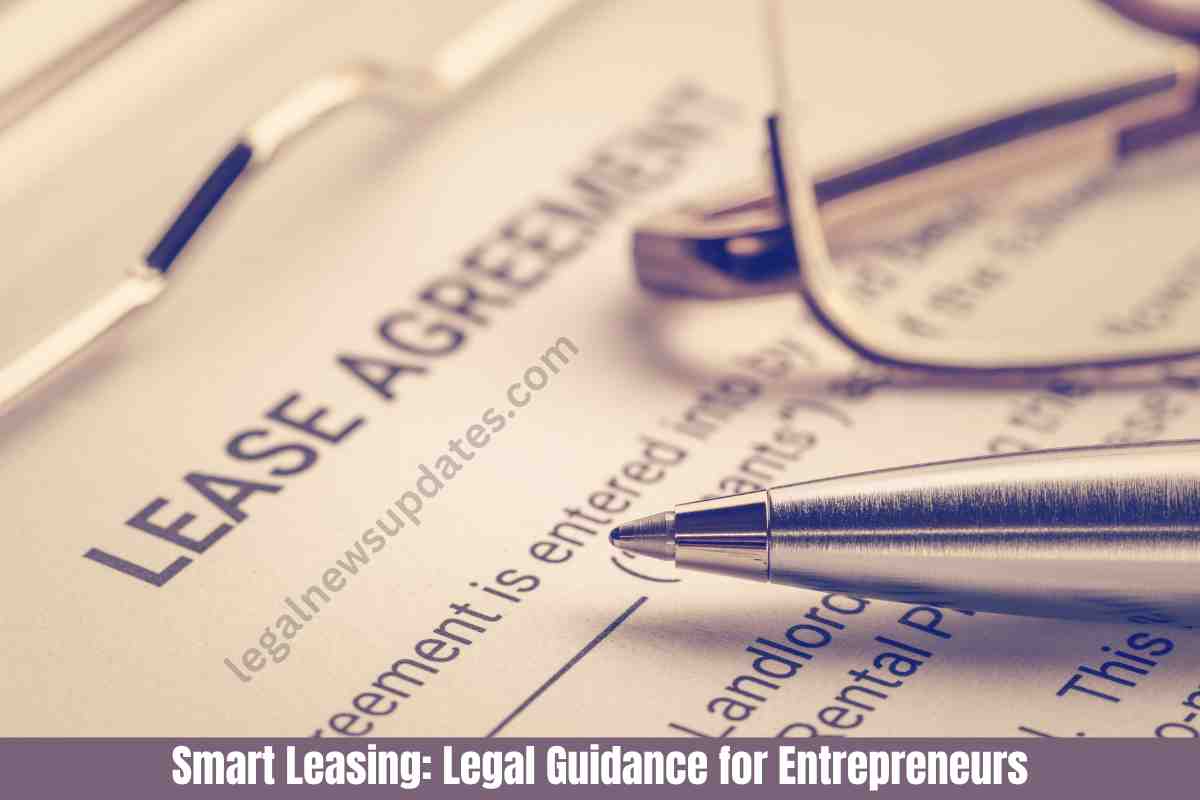Smart Leasing: Legal Guidance for Entrepreneurs

Introduction to Commercial Leasing
Smart Leasing: Legal Guidance for Entrepreneurs:-Navigating the world of commercial leasing presents a unique set of challenges and opportunities for business owners. A suitable commercial space can serve your operational needs and enhance your brand’s visibility and accessibility. However, the complexities of commercial leases, with their intricate negotiations and legal terms, require a keen understanding and strategic approach. This blog aims to equip you with essential legal tips for negotiating a commercial lease, ensuring you secure a deal that supports your current operational needs and future growth ambitions. We will explore everything from the basics of understanding different lease types to the nitty-gritty of lease negotiations, all aimed at helping you avoid common pitfalls and secure a lease agreement that is both beneficial and flexible.
Understanding Commercial Leases
The foundation of a good leasing decision lies in understanding the different types of commercial leases and how they impact your financial responsibilities. Commercial leases differ significantly from residential leases in their complexity and the degree of negotiation involved. Key to this understanding is grasping the nuances between net leases, gross leases, and modified gross leases, each of which allocates the costs of rent, taxes, insurance, and maintenance in different ways. For instance, in a net lease, the tenant is typically responsible for the rent and a portion of the property’s taxes, insurance, and maintenance costs. On the other hand, a gross lease generally includes all these costs within the rent, offering a more straightforward, albeit sometimes more expensive, option. This section will guide you through these types, offering insights into the best fit for your business’s financial and operational needs and how to approach these leases to your advantage.

Negotiating Your Lease Terms Of Smart Leasing: Legal Guidance for Entrepreneurs
The art of negotiation is crucial in securing a commercial lease that aligns with your business goals. Unlike residential leases, commercial agreements offer significant room for negotiation, allowing you to tailor the terms to suit your needs better. This includes not only the rent and duration of the lease but also more nuanced aspects such as improvement allowances, sublease options, and termination rights. For example, negotiating a favorable improvement allowance can significantly reduce initial setup costs. At the same time, a well-thought-out termination clause can provide an essential safety net if your business’s needs change. This segment will delve into strategic negotiation tactics, crucial clauses for your business, and how to ensure your lease offers the flexibility and protections your business needs to thrive.
Legal Considerations and Protections
Understanding the legal landscape is vital to protect your interests when entering a commercial lease. This involves thoroughly reviewing the lease agreement to identify and negotiate key provisions that could affect your business in the long run. Essential considerations include:
Personal guarantee requirements can expose your assets to risk.
Compliance with local zoning laws, ensuring your business operations are permissible in the leased space.
Mechanisms for resolving disputes with the landlord.
Additionally, this section will explore ensuring your lease agreement complies with Americans with Disabilities Act (ADA) requirements and other regulatory standards, protecting your business from potential legal issues, and providing an inclusive environment for your customers and employees.

Financial Implications and Cost Management
Beyond the base rent, a commercial lease encompasses various financial obligations that can significantly affect your business’s bottom line. These may include maintenance fees, property taxes, insurance premiums, and utility costs, which can vary greatly depending on the lease structure and the property itself. Understanding and negotiating these terms can lead to substantial cost savings and help avoid unexpected expenses. This part of the blog will offer guidance on managing these costs, budgeting for your lease, and negotiating terms that can mitigate financial risks, such as caps on annual rent increases and expense pass-throughs.
Exiting or Renewing Your Lease
The flexibility to adapt to changing business needs is crucial, and your commercial lease should accommodate this. Whether due to growth, downsizing, or a change in business strategy, there may come a time when you need to exit your lease early or negotiate a renewal under different terms. This section will cover the strategy for negotiating exit clauses, such as subletting and assignment options, that can offer flexibility if your business needs to relocate or close. Additionally, we’ll discuss how to approach lease renewals strategically, including timing negotiations to your advantage and updating terms to reflect current market conditions and your business’s evolved needs.

Conclusion: Smart Leasing: Legal Guidance for Entrepreneurs
Securing a commercial lease is a significant step in your business’s growth journey but is fraught with potential legal and financial pitfalls. Armed with the proper knowledge and negotiation strategies, you can navigate these complexities to secure a lease agreement that meets your current needs and accommodates future growth. Consulting with legal and real estate professionals can provide invaluable insights tailored to your situation, ensuring that your commercial leasing decisions are informed and strategic.







